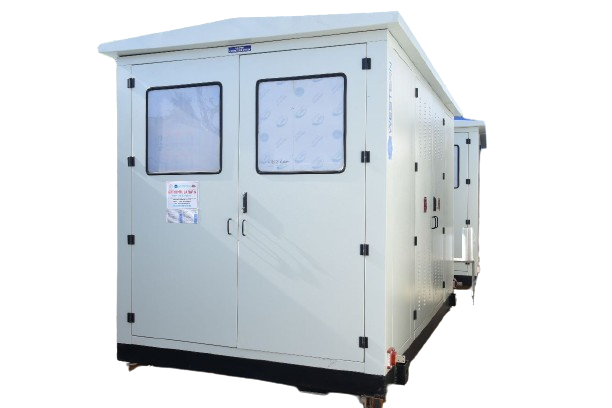Choosing the Right Bus Ducts for Your Packaged Substation Project
When planning a Packaged Substation project, selecting the right Bus Ducts is a crucial decision. These electrical components play a significant role in distributing power within substations and are integral to the efficiency and safety of the system. In this article, we will guide you through everything you need to know about choosing the best Bus Ducts for your Packaged Substation, helping you make an informed choice for optimal performance.
What Are Bus Ducts?
Bus Ducts are an essential part of electrical systems used to transfer power from one point to another. These systems are made up of a series of busbars enclosed in a metal housing, which ensures the safe and efficient delivery of electricity. Bus Ducts are typically used in substations, industrial settings, and large buildings where electrical power needs to be distributed over long distances.In a Packaged Substation, Bus Ducts allow for the seamless transfer of electricity between components such as transformers, switchgear, and other electrical equipment. Their role is to ensure a steady and reliable flow of electricity, minimizing the risk of faults or interruptions.
Why Choose the Right Bus Ducts for Your Packaged Substation?
1. Safety First
Safety is one of the most important factors when selecting Bus Ducts for your Packaged Substation. Poorly designed or improperly installed bus ducts can lead to electrical hazards, such as short circuits, overheating, or fires. It is essential to choose Bus Ducts that comply with industry safety standards to ensure the protection of both equipment and personnel.
2. Performance and Efficiency
The right Bus Ducts enhance the overall performance and efficiency of your substation. The quality of the materials used in the bus duct, as well as its design, can affect how effectively electricity is distributed. Choosing high-quality, well-designed Bus Ducts will ensure that the system operates efficiently, reducing power loss and improving the overall performance of the Packaged Substation.
3. Durability and Longevity
Given the continuous nature of power distribution, Bus Ducts must be durable and built to last. Weather conditions, high temperatures, and vibration from electrical currents can take a toll on substation equipment. It is essential to choose Bus Ducts that are resistant to these environmental factors, ensuring long-term reliability and reducing maintenance costs.

Key Considerations When Choosing Bus Ducts for Your Packaged Substation
1. Current Rating and Load Capacity
One of the first factors to consider when selecting Bus Ducts is the current rating and load capacity. The Bus Ducts must be able to handle the maximum load expected in the Packaged Substation without overheating or experiencing excessive wear. It’s important to match the current rating of the Bus Ducts with the specific power requirements of your substation.
2. Type of Bus Ducts: Air-Insulated vs. Gas-Insulated
There are two main types of Bus Ducts to choose from: air-insulated and gas-insulated. Air-insulated Bus Ducts are typically more cost-effective but require more space and maintenance. On the other hand, Gas-insulated Bus Ducts offer a more compact design and are more reliable in harsh environments, though they are generally more expensive. Your decision will depend on your specific requirements and budget for the Packaged Substation project.
3. Material Quality
The material used in the construction of Bus Ducts is essential to their performance and durability. Copper and aluminum are the two primary materials used in bus duct construction. Copper offers better conductivity, while aluminum is lighter and more cost-effective. Depending on your specific needs, choosing the right material is essential for both performance and cost-efficiency.
4. Installation and Maintenance Requirements
The ease of installation and ongoing maintenance should also be a significant consideration. Some Bus Ducts are easier to install and require minimal maintenance, which can help reduce labor costs and downtime. Ensure that the Bus Ducts you choose are easy to maintain and meet the specific installation requirements of your Packaged Substation.
5. Compatibility with Other Equipment
Lastly, make sure that the Bus Ducts you select are compatible with other components in your Packaged Substation. This includes transformers, switchgear, and other electrical equipment. A well-integrated system ensures better overall functionality and minimizes the risk of electrical failures.
FAQs
1. What Are the Benefits of Using Bus Ducts in Packaged Substations?
Bus Ducts are essential for efficient power distribution, enhancing safety, and improving performance in Packaged Substations.
2. How Do I Determine the Right Current Rating for My Bus Ducts?
The current rating of your Bus Ducts should match the maximum load expected from your Packaged Substation, ensuring they operate within safe limits.
3. What is the Difference Between Air-Insulated and Gas-Insulated Bus Ducts?
Air-insulated bus ducts are less expensive but require more space and maintenance, while gas-insulated bus ducts are more compact and reliable in harsh conditions.
4. How Often Should I Maintain My Bus Ducts?
Regular maintenance of your Bus Ducts is necessary to ensure safety and reliability, but the exact frequency will depend on the operating conditions.
5. Can Bus Ducts Be Used in Outdoor Substations?
Yes, Bus Ducts can be used in outdoor substations, provided they are designed to withstand environmental elements like humidity, dust, and temperature fluctuations.
6. What is the Role of Bus Ducts in Substations?
Bus Ducts are essential for safely distributing electrical power within Sub Stations, ensuring a steady flow of electricity between components.
Conclusion
Choosing the right Bus Ducts for your Packaged Substation is crucial for ensuring safety, performance, and longevity. By considering factors such as current rating, material quality, and compatibility with other equipment, you can make an informed decision that will benefit your project in the long run. For top-quality Bus Ducts and expert advice, trust Western Control Automation Pvt. Ltd. to help you achieve the best results in your Packaged Substation installation.
